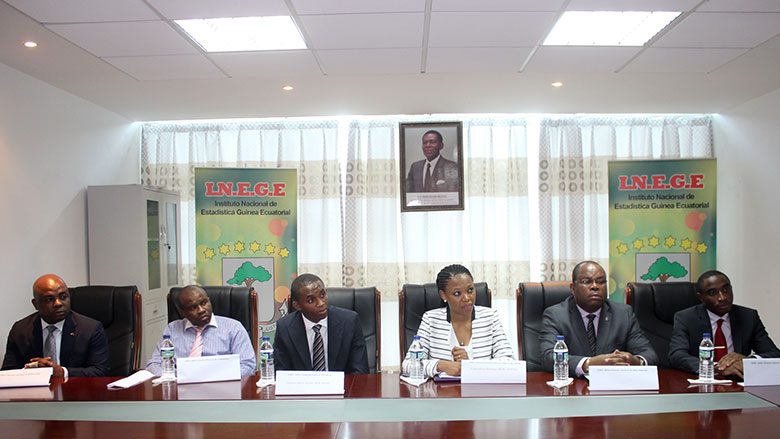MALABO, August 17, 2016—What do a Minister of Education, who is trying to reduce the school dropout rates and improve education quality, a Minister of Health, who is trying to address gaps in maternal and infant health, and a Minister of Finance, whose priority is to diversify the economy to drive more sustainable growth, all have in common?
Data! They all need a system for collecting data and information to inform their development policies and programs. One that can provide the intelligence needed to set benchmarks, monitor and evaluate the progress of their policies, and determine whether they are meeting their development goals.
However, in the absence of a central data bank in Equatorial Guinea, policy makers are facing several challenges as they struggle to gather and disseminate statistical data, and understand the impact and effectiveness of implemented policies.
Recognizing this critical gap, the Ministry of Economy, Planning, and Public Investment of Equatorial Guinea established a national statistics office called Instituto Nacional de Estadística de Guinea Equatorial (INEGE) in 2013. Through a Reimbursable Advisory Service (RAS), the World Bank is working on strengthening the national statistical system by providing usable, complete, and accurate data and statistics.
“Our country is aware of the necessity and importance of providing international organizations, private sector and the public in general with data that reflects the socio-economic reality of the Republic of Equatorial Guinea. The government has undertaken significant efforts to establish and strengthen the capacity of the National Statistical Institute, and we can already witness the fruits of such efforts,” said Eucario Bakale Angüe, Minister of Economy, Planning, and Public Investment, at the launch of INEGE’s first economic report in July.
As part of the process, INEGE is working with various agencies within the public sector at both central and provincial levels to conduct outreach activities on data collection and reporting to the national data bank. Together, the World Bank Group and the Ministry have defined a range of activities that include:
- Providing technical assistance towards capacity building by developing a work plan and a timeline to conduct key statistical operations, such as a business census, a household survey, an enterprise census, an agricultural survey, an employment survey, and key time series such as National Accounts or Consumer Price Indices (CPI);
- Helping operationalize the newly founded INEGE in its day to day operations on structure, management, human resources, legal and institutional framework, and implementation of an action plan to promote education in statistics;
- Promoting the use of statistics in decision making enabling policy makers to fully understand the social and economic situation of the country and implement targeted policies and programs to address those issues.
“With the support of the RAS, we aim to break the vicious circle of limited data availability, low use of data in policymaking, and a weak statistical culture by promoting both the collection and dissemination of better quality data, and its systematic use for social and economic policy formulation,” explains Alain Gaugris, World Bank Senior Statistician and project lead.


